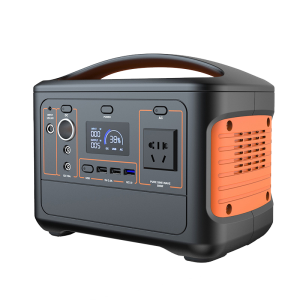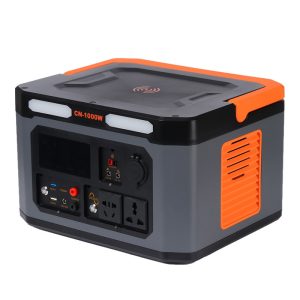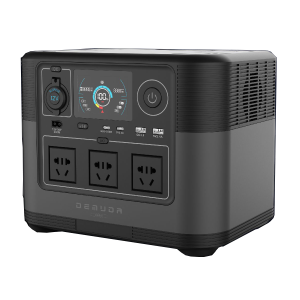More
Powering Your Adventures: Unleashing the Potential of Advanced Battery Chemistry in Outdoor Portable Power Stations
Powering Your Adventures: Unleashing the Potential of Advanced Battery Chemistry in Outdoor Portable Power Stations
Introduction:
Outdoor adventures often take us to remote locations where access to reliable power is limited. Thanks to advancements in battery technology, outdoor portable power stations have become indispensable companions for adventurers seeking a dependable and versatile power source. In this blog post, we will explore the role of advanced battery chemistry in outdoor portable power stations, examining how these innovations are revolutionizing outdoor power solutions and enabling us to stay connected and powered during our expeditions.
-
Lithium-Ion Batteries: Power and Efficiency:
One of the most prevalent and groundbreaking battery chemistries used in outdoor portable power stations is lithium-ion (Li-ion) technology. Li-ion batteries offer a compelling combination of high energy density and efficiency, making them ideal for portable power applications. With Li-ion batteries, outdoor enthusiasts can enjoy extended runtimes, powering a wide range of devices and appliances while keeping the weight and bulk of their power stations to a minimum. The energy efficiency of Li-ion batteries also minimizes energy wastage, maximizing the utilization of stored power.
-
Lithium Iron Phosphate (LiFePO4): Safety and Longevity:
Another advanced battery chemistry finding its way into outdoor portable power stations is lithium iron phosphate (LiFePO4). LiFePO4 batteries are renowned for their excellent safety profile, thermal stability, and long lifespan. These batteries are highly resistant to thermal runaway and are less prone to overheating or combustion, even under extreme conditions. The inherent stability of LiFePO4 chemistry ensures a reliable and secure power source for outdoor activities. Additionally, LiFePO4 batteries have a longer cycle life, meaning they can endure more charge and discharge cycles before experiencing a significant decline in performance, making them an ideal choice for long-term outdoor power solutions.
-
Nickel-Metal Hydride (NiMH): Eco-Friendly Option:
For eco-conscious outdoor enthusiasts, nickel-metal hydride (NiMH) batteries provide a greener alternative. NiMH batteries are more environmentally friendly than traditional alkaline batteries as they are rechargeable and can be used repeatedly, reducing the number of single-use batteries that end up in landfills. While NiMH batteries have a lower energy density compared to Li-ion or LiFePO4 batteries, they still offer a respectable power capacity and can be an excellent choice for powering smaller devices and appliances during outdoor adventures.
-
Solid-State Batteries: Future of Outdoor Power:
As technology continues to advance, solid-state batteries are emerging as a potential game-changer for outdoor portable power stations. Unlike traditional batteries, which use liquid electrolytes, solid-state batteries employ solid electrolytes. This innovation brings several benefits, including higher energy density, improved safety, and faster charging capabilities. Solid-state batteries have the potential to revolutionize the outdoor power landscape, offering even more compact and efficient power solutions for adventurers seeking lightweight and high-performance portable power stations.
-
Custom Battery Solutions: Tailored Power for Unique Needs:
In addition to the advancements in battery chemistries mentioned above, manufacturers are increasingly offering customizable battery solutions for outdoor portable power stations. This allows users to select the battery chemistry that best aligns with their specific needs and preferences. Whether it’s prioritizing power density, safety, longevity, or eco-friendliness, the ability to choose a custom battery solution ensures that outdoor enthusiasts can optimize their power stations for their unique requirements, enhancing their overall outdoor experience.
Conclusion:
Advanced battery chemistry has revolutionized the capabilities and performance of outdoor portable power stations. Whether it’s the high energy density of lithium-ion batteries, the safety and longevity of lithium iron phosphate, the eco-friendliness of nickel-metal hydride, or the potential of solid-state batteries, these technological advancements have empowered outdoor enthusiasts with more efficient, reliable, and sustainable power solutions. When selecting an outdoor portable power station, consider the battery chemistry options available to find the perfect balance of power, safety, longevity, and environmental impact for your outdoor adventures.
















